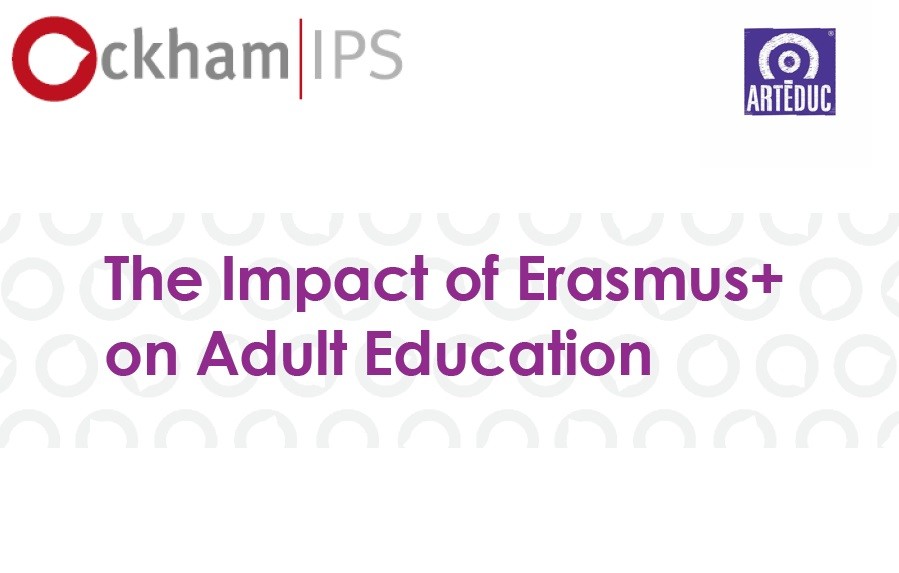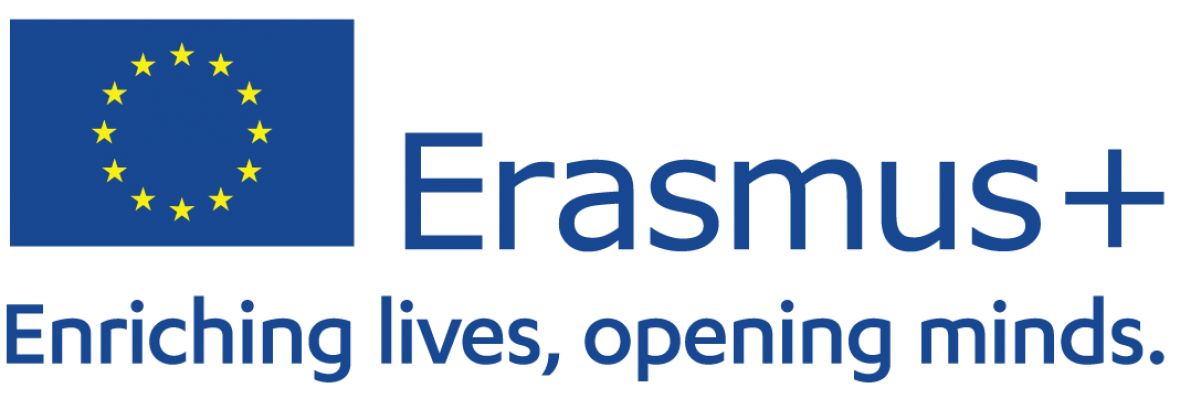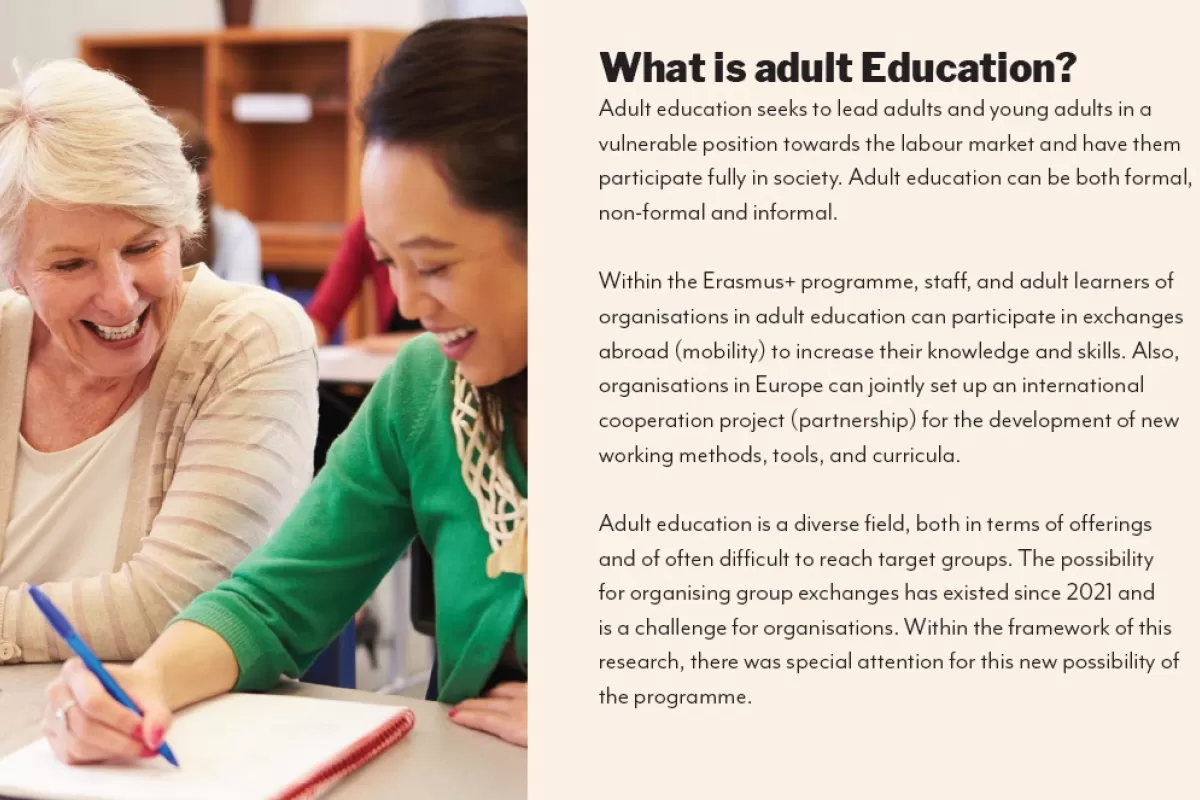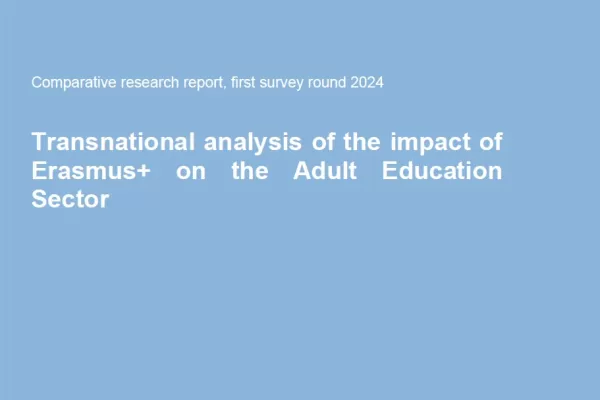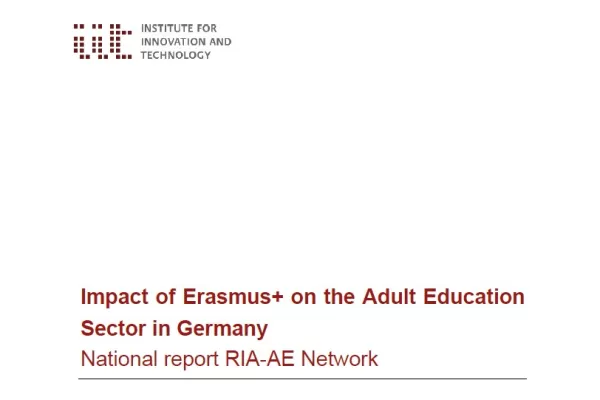The goal of the research was to inventory the added value of the Erasmus+ programme to adult education in the Netherlands. At issue is the impact of internationalisation activities on organisations and on individual people. The different aspects of the research included the impact on professionals and volunteers who work for organisations that are active in the sector, as well as the impact on the different target groups in adult education: their wellbeing, surroundings, and their participation in society.
Within the Erasmus+ programme, staff, and adult learners of organisations in adult education can participate in exchanges abroad (mobility) to increase their knowledge and skills. Also, organisations in Europe can jointly set up an international cooperation project (partnership) for the development of new working methods, tools, and curricula.
Adult education is a diverse field, both in terms of offerings and of often difficult to reach target groups. The possibility for organising group exchanges has existed since 2021 and is a challenge for organisations. Within the framework of this research, there was special attention for this new possibility of the programme.
Conclusions
- Erasmus+ supports a wide variety of organisations. The business community (including consultancies) proves a prominent applicant, as are welfare and cultural institutions and foundations.
- The inventory shows that impact of Erasmus+ is primarily experienced in internationalisation of their employees, administration of international projects, vision on internationalisation, and structural financing of internationalisation.
- Nearly all respondents say that developed intellectual outputs were integrated into their regular offerings. A large majority also experience a discernible improvement in quality of their learning pathways as a result of Erasmus+.
- Over a third of the respondents say that more than half of the professionals in their employ participated in recent Erasmus+ projects. A third of the respondents state that involvement of adult learners did not apply to them.
- The most often reported impact on professionals are improved teaching, greater attention for inclusion/diversity, development of learning pathways and greater attention for world citizenship.
- The main impact on adult learners (observed by organisations), is that participation in Erasmus+ expands their living environment, followed by more chances to advance and new contacts outside their learning pathways. To a lesser extent, learners have better chances on the labour market and other learning pathways of their organisation have become more accessible.
Recommendations
- Programme to be more strategically oriented: Align Erasmus+ projects with national policy priorities. Identify sector needs and where therefore the focus should be on. This exploration could be conducted in cooperation with sector and Erasmus+ experts.
- Focus on outreach work and facilitate applicants: There are many organisation that are unacquainted with the programme and its added value. The NA should draw up a clear outreaching strategy and be persistent about it in order to eventually reach organisations who could benefit from this programme.
- Facilitate the mobility of adult learners better: Respondents need more support from the programme to facilitate KA1 mobilities for adult learners, such as by means of a guideline including an overview of mobility obstacles, tips, good practices to mitigate obstacles, and what the programme can do to help.
- Support projects in the dissemination of outcomes: Applicants experience difficulties in translating results into general policy or other contexts. This appears to limit participation of Erasmus+ to a direct impact on participating organisation and participants, because dissemination and mainstreaming of outcomes form an important part of the programme.
- Strengthen the programme’s knowledge management: Consider a more thematic layout of the impact measurement.
More information?
Looking for more information about this project? Get in touch: onderzoek@erasmusplus.nl.
